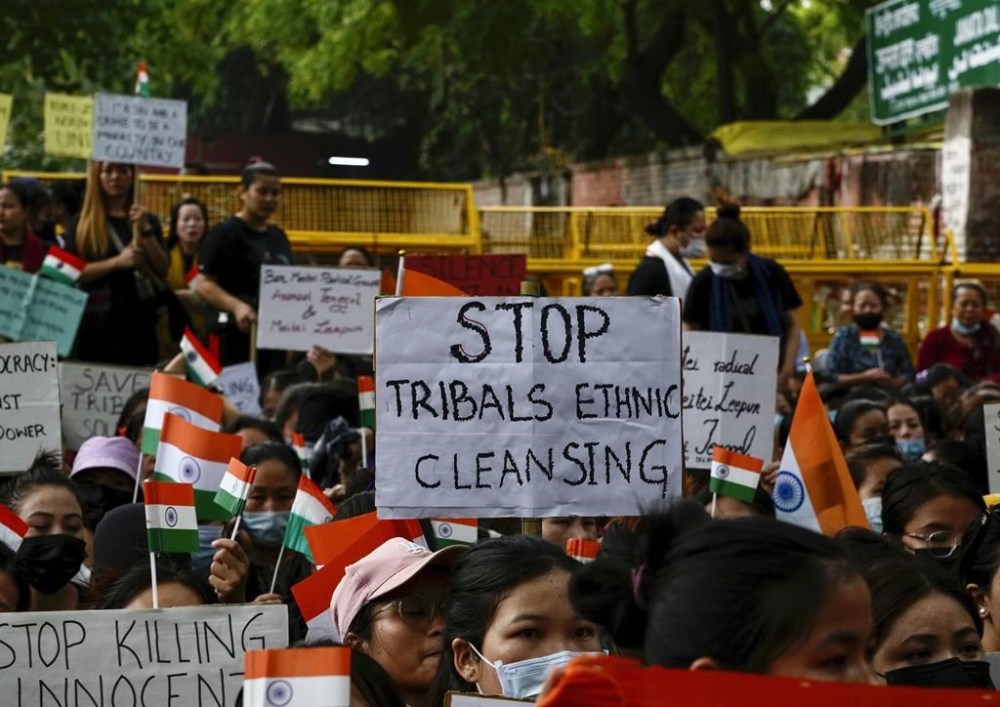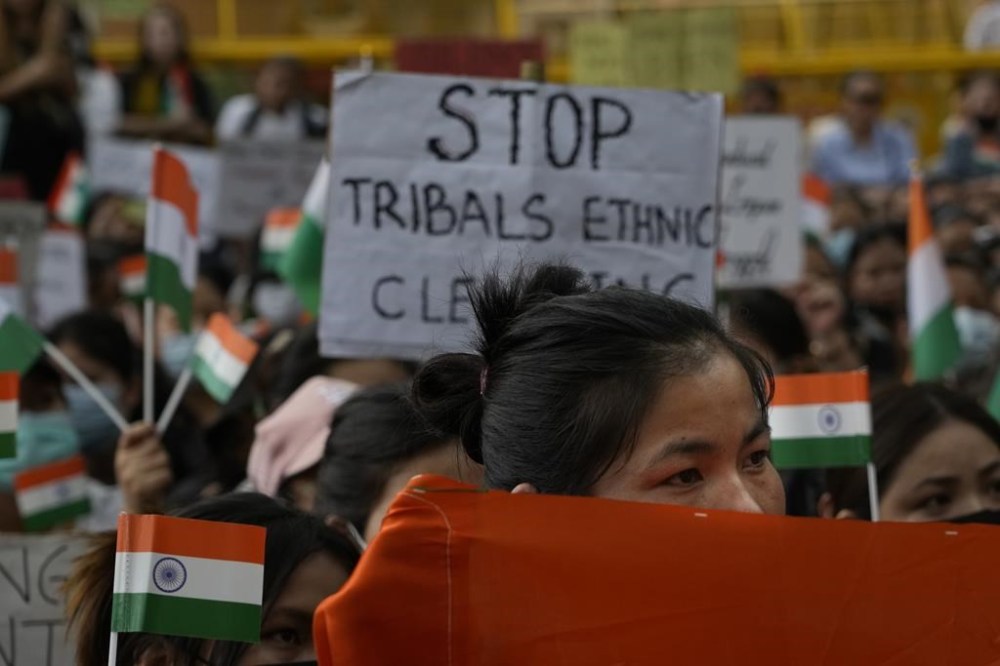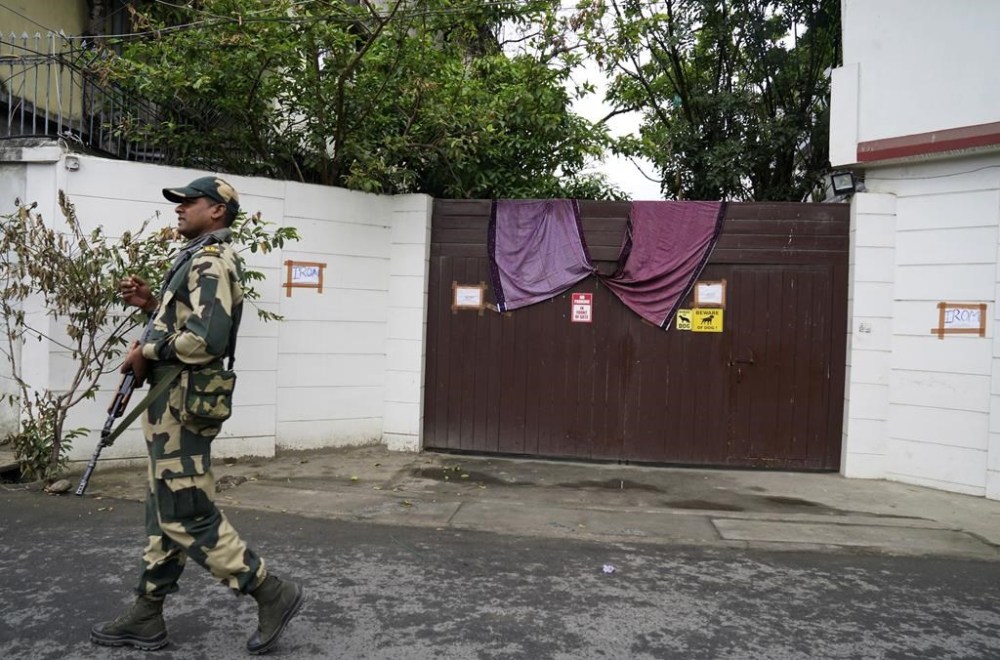India’s northeast remains on edge after ethnic clashes as home minister plans visit
Advertisement
Read this article for free:
or
Already have an account? Log in here »
To continue reading, please subscribe:
Monthly Digital Subscription
$0 for the first 4 weeks*
- Enjoy unlimited reading on winnipegfreepress.com
- Read the E-Edition, our digital replica newspaper
- Access News Break, our award-winning app
- Play interactive puzzles
*No charge for 4 weeks then price increases to the regular rate of $19.95 plus GST every four weeks. Offer available to new and qualified returning subscribers only. Cancel any time.
Monthly Digital Subscription
$4.99/week*
- Enjoy unlimited reading on winnipegfreepress.com
- Read the E-Edition, our digital replica newspaper
- Access News Break, our award-winning app
- Play interactive puzzles
*Billed as $19.95 plus GST every four weeks. Cancel any time.
To continue reading, please subscribe:
Add Free Press access to your Brandon Sun subscription for only an additional
$1 for the first 4 weeks*
*Your next subscription payment will increase by $1.00 and you will be charged $16.99 plus GST for four weeks. After four weeks, your payment will increase to $23.99 plus GST every four weeks.
Read unlimited articles for free today:
or
Already have an account? Log in here »
Hey there, time traveller!
This article was published 29/05/2023 (960 days ago), so information in it may no longer be current.
GUWAHATI, India (AP) — Shootings and arson continued Monday in India’s northeastern state of Manipur, where clashes between security forces and tribal insurgents the previous day killed five people, media reports said.
The state, which borders Myanmar, has been roiled by violence for weeks after members of mostly Christian tribal groups clashed with the Hindu majority over its demands for special economic benefits.
More than 75 people have been killed in the fighting, the state’s worst ethnic clashes in decades. Hundreds have been injured and more than 35,000 have been displaced.

Authorities said Indian Home Minister Amit Shah was expected to arrive in the state capital, Imphal, on Monday evening to review the security situation and help restore peace in the state, where the internet has been shut off to stop rumors from spreading and a curfew is in place.
The violence prompted the federal government to rush thousands of paramilitary and army troops to the state, and many of the recent deaths were caused by the security forces.
The state’s chief minister, N. Biren Singh, said Sunday that 40 Kuki insurgents have been killed by government troops. It was not clear whether the figure was part of the overall death toll.
“The fight is not between communities, it is between Kuki rebels and government security forces,” Singh told reporters.
He said insurgents fired at civilians and burned down homes, prompting the security forces to counter their attacks.

The clashes occurred after the security forces began searching for weapons looted from police stations in order to curb the violence, the Press Trust of India news agency reported.
Homes and buildings burned in some villages on Sunday, with plumes of grey smoke filling the skies. Troops also fired in the air and lobbed tear gas shells to disperse a mob that attempted to take weapons from a police station near Imphal, said Sapam Ranjan, a state government spokesperson. He said 1,041 guns and 7,500 rounds of ammunition have been looted in recent weeks, with authorities recovering about 500 weapons so far.
Gunfire was reported Monday in districts near the capital, army officials said. Homes were also set ablaze in the Leimakhong area, they said.
The violence first broke out on May 3 after protests by more than 50,000 Kukis and members of other predominantly Christian tribal communities against the majority Meitei Hindu community’s demand for a special status that would give them benefits including access to forest land, cheap bank loans, health and educational facilities, and more government jobs.
The Kuki and other minority leaders say the Meitei community is comparatively well-off and that granting them more privileges would be unfair. The Meiteis say employment quotas and other benefits for the tribespeople would be protected.

Two-thirds of the state’s 2.5 million people live in a valley that comprises roughly 10% of the state’s total area. The Kuki and other tribes mainly live in the surrounding hill districts.

